Sophie Cerf
Event-Based Control for Online Training of Neural Networks
Mar 20, 2020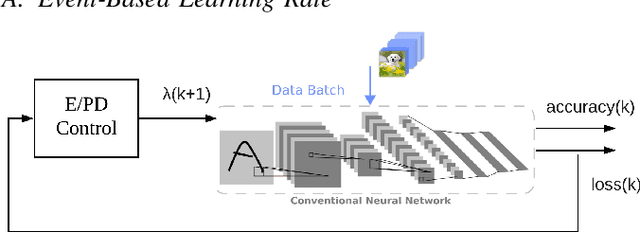
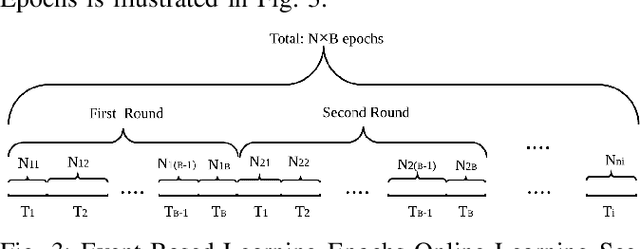
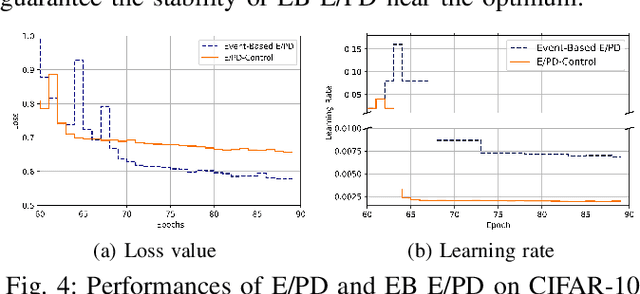

Abstract:Convolutional Neural Network (CNN) has become the most used method for image classification tasks. During its training the learning rate and the gradient are two key factors to tune for influencing the convergence speed of the model. Usual learning rate strategies are time-based i.e. monotonous decay over time. Recent state-of-the-art techniques focus on adaptive gradient algorithms i.e. Adam and its versions. In this paper we consider an online learning scenario and we propose two Event-Based control loops to adjust the learning rate of a classical algorithm E (Exponential)/PD (Proportional Derivative)-Control. The first Event-Based control loop will be implemented to prevent sudden drop of the learning rate when the model is approaching the optimum. The second Event-Based control loop will decide, based on the learning speed, when to switch to the next data batch. Experimental evaluationis provided using two state-of-the-art machine learning image datasets (CIFAR-10 and CIFAR-100). Results show the Event-Based E/PD is better than the original algorithm (higher final accuracy, lower final loss value), and the Double-Event-BasedE/PD can accelerate the training process, save up to 67% training time compared to state-of-the-art algorithms and even result in better performance.
Feedback Control for Online Training of Neural Networks
Nov 18, 2019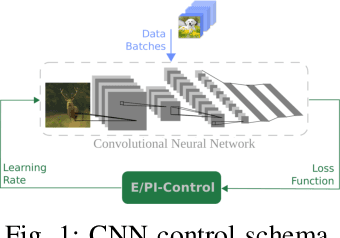
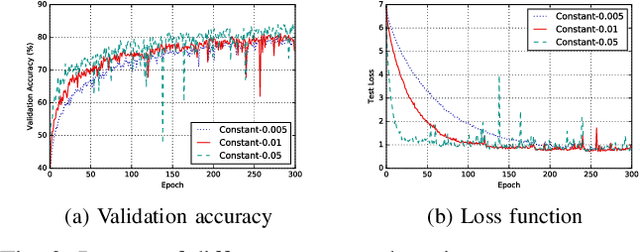
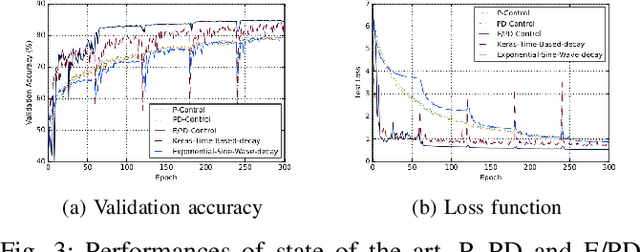
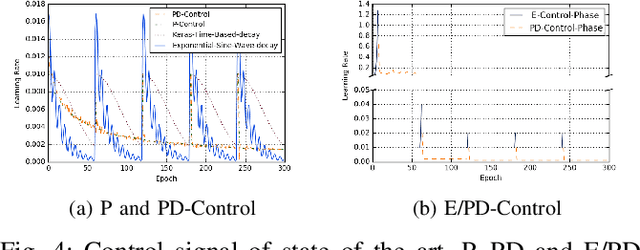
Abstract:Convolutional neural networks (CNNs) are commonly used for image classification tasks, raising the challenge of their application on data flows. During their training, adaptation is often performed by tuning the learning rate. Usual learning rate strategies are time-based i.e. monotonously decreasing. In this paper, we advocate switching to a performance-based adaptation, in order to improve the learning efficiency. We present E (Exponential)/PD (Proportional Derivative)-Control, a conditional learning rate strategy that combines a feedback PD controller based on the CNN loss function, with an exponential control signal to smartly boost the learning and adapt the PD parameters. Stability proof is provided as well as an experimental evaluation using two state of the art image datasets (CIFAR-10 and Fashion-MNIST). Results show better performances than the related works (faster network accuracy growth reaching higher levels) and robustness of the E/PD-Control regarding its parametrization.
 Add to Chrome
Add to Chrome Add to Firefox
Add to Firefox Add to Edge
Add to Edge